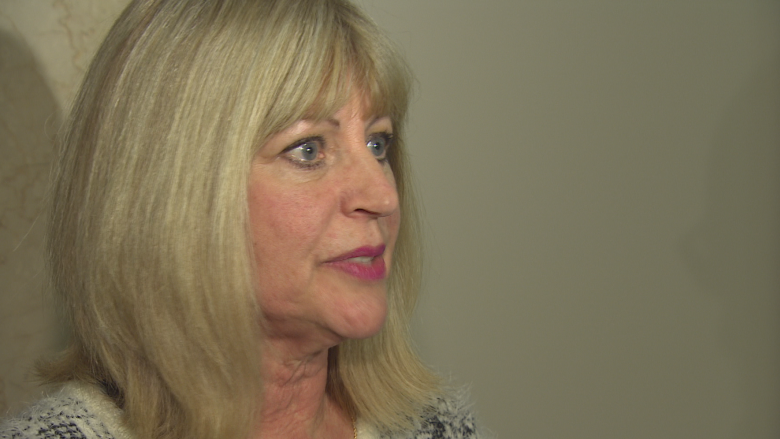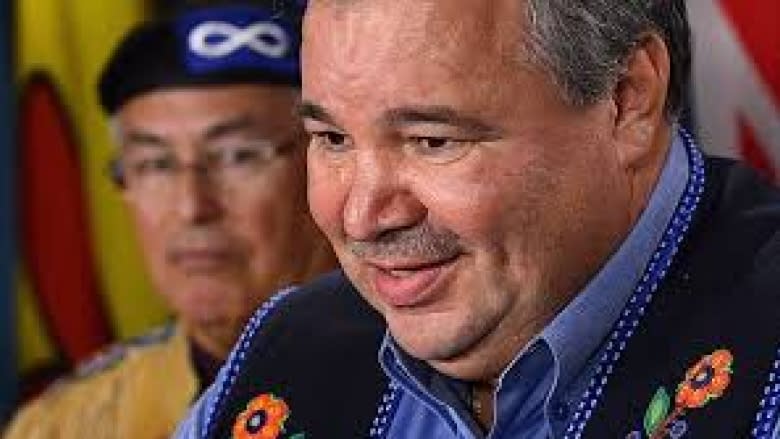Night hunting debate delivers Manitoba reeves to minister's door
Rural politicians from across southwestern Manitoba will convene in Winnipeg Tuesday with a united goal in mind — to shoot down night hunting.
The reeves are meeting with Manitoba's Minister of Sustainable Development Cathy Cox to ask for more restrictions of a practice they say is both dangerous and irresponsible.
"There's been several farmers seen it occurring at night, hearing shots go off in the middle of the night, seeing vehicles driving past shining lights out into the field," said Archie McPherson, the reeve of the Rural Municipality of Pipestone.
"Of course everybody is concerned about safety when people are driving around with firearms and discharging them at night."
The province has cracked down on illegal night hunting, laying 44 charges in 2016, nearly double the previous year's total.
Night hunting is illegal in Manitoba for non-Indigenous hunters. The Constitution Act (1982) provides that First Nations with status have a right to hunt for sustenance uses, provided those areas don't have any restrictions. Methods such as "spotlighting" techniques, where a hunter shines powerful lights on prey, are legal for Indigenous hunters.
"Personally I feel [night hunting] should be banned. There is no need or reason for night hunting," McPherson said.
"They've got daytime to hunt … if your season is on. And in the case of Indigenous people, they've got certain rights that allow them to hunt over and above what the rest of us can hunt, but there's no need to hunt at nighttime. It's an extreme danger to everyone."
'No one's intention was ever to involve race'
The conversation around night hunting escalated after Manitoba Premier Brian Pallister made controversial comments at a Progressive Conservative Party luncheon in Virden, Man., last week.
"What is fair about going out and shooting at a pair of eyes in the night with a high-powered rifle? What's sustainable about that?" Pallister asked.
He went on to say that the government is organizing to bring Indigenous people together who say the same thing because "it's becoming a race war."
"Young Indigenous guys going out and shooting a bunch of moose because they can. Because they say it's their right. It doesn't make any sense to me," Pallister added.
CBC has asked for information on who was charged in 2016 and where the offences took place and has yet to receive an answer, so it's not clear if First Nations hunters were responsible for any of the infractions.
McPherson said the reeves' gathering and concerns around night hunting were never intended to be framed around race.
"No one's intention was ever to involve race in it whatsoever. It's the safety of everybody … and livestock and the whole purpose behind this initiative was to try to manage the wildlife as well as the safety of everybody concerned," he said.
McPherson added that it's important for all parties concerned to work together to find a solution.
Time for action
McPherson said some farmers in his area spent the fall finding bullet holes in their machinery or animal carcasses that had been shot and left to die.
So, while reeves understand there will need to be conversations, McPherson said if there isn't action it will start to impact hunting across the province.
"Unfortunately, people and farmers in general are getting so fed up with what's going on that they aren't allowing anyone … to hunt on their land," he said.
"You'd hate to see that happen. It helps the economies in the area when people come in to hunt the deer in the fall."
Cox said night hunting was in her mandate letter from the premier so it is clearly an important issue.
"It's a very emotional and complex issue and we are going to reach out to all parties and have discussions and good consultations and, you know, work with all parties to ensure that we have safe hunting practices in Manitoba," she said.
The minister added that she welcomes talks with the reeves and will tell them that there will be "all party discussions and consultations" in order to "work together to address safe hunting concerns that we have here in the province."
That's a conversation that the Manitoba Métis Federation says they've been waiting for.
'Sit down government to government'
MMF President David Chartrand said he has made it very clear to the premier that he's ready to talk.
"Let's sit down government to government. Let's establish this. I have no problem sitting down with all Manitobans in my view." He said.
"This is a Manitoba issue. It's not just the premier or David Chartrand's issues, this is an important issue but let's do it right."
Chartrand added that there are Métis laws established around when people can hunt — seasons and limits. He said the MMF is open to having a dialogue around those laws and consulting with Métis people about changes. However, Métis hunting rights have to be maintained, he added.
"Rights have to be respected for Indigenous people as property rights have to be respected," he said.
As for the premier's comments about a "race war," Chartrand cautioned him to not use that language again.
"As leaders we have to be very careful. We can instigate something else beyond what we can actually control later."



